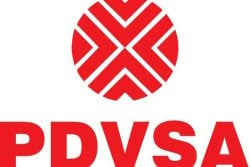The Georgetown Chamber of Commerce and Industry (GCCI) ought to direct its attention to those state agencies that share responsibility for the execution of procedures associated with importation of goods into the country if it is to get its wish to reduce and, hopefully, eradicate altogether the importation of counterfeit and expired goods, a senior employee at a state agency responsible for aspects of ‘green-lighting’ imports into the country has told the Stabroek Business. Last week the Stabroek Business raised the issue with the state agency functionary following an earlier public statement by the Chamber regarding what it says has been an “alarming increase in the presence of counterfeit, expired, and inappropriately labelled goods in the market” which apart from being “clear violations of lawful standards” also amounted to “a health hazard to consumers.”
However, while the state agency functionary embraced the Chamber’s view on the proliferation of sub-standard and expired goods he suggested to the Stabroek Business that the Chamber is well aware of “where to look to find answers.” According to the source, the circumvention of the laws governing the importation of goods into the country derives mainly from “corrupt collusion” between “some importers” and “contacts” in state agencies “responsible for the effective execution of the laws.” Given the increase in the volume of imports linked to sectors that include construction, entertainment and the wholesale and retail sectors, there have been reports of collusion between importers and functionaries in state agencies responsible for the expediting of import procedures and elements within which some functionaries collude with importers to circumvent procedures related to, among other things, quality standards. The state agency official told the Stabroek Business that it was “disingenuous” of the City Chamber to pretend that it was not aware of the ‘bottom line’ where illegal imports are concerned.
The Chamber, in its pronouncement, alluded to what it believes has been “an alarming increase in the presence of counterfeit, expired, and inappropriately labelled goods in the market, which are not only clear violations of lawful standards but also a health hazard to consumers.” Accordingly, the Chamber reportedly asserted that it was “issuing a call to the Guyana National Bureau of Standards and the Government Analyst-Food and Drug Department to ensure that an investigation is conducted and any product that is not within the guidelines be removed from shelves and prohibited for sale.” The state official told the Stabroek Business that such a call is unlikely to be realized since “you really don’t know where the gravy train ends.” For such practices to be arrested, the official told the Stabroek Business, what has to exist is what he described as an “end to end commitment” to stomping out the irregularities. “I’m not sure that this obtains at this time,” he added.
One of the likely knock-on effects of lack of effective monitoring of the importation of goods into the country has been concerns expressed in the construction industry regarding the quality of consignments of fixtures and fittings imported for use in the sector. Contextually, complaints have been known to arise about what are believed to be sub-standard electrical and other fittings imported into the country. The state official with whom the Stabroek Business spoke said that in the matter of removing the anomalies in the country’s imports regime, “it is more a question of will than a matter of tightening the laws. You can make whatever measures you like on paper, if you can’t translate these into actual effective execution we are going nowhere,” he added.
According to the state official, the country’s construction and food sectors are among those that are most likely to be affected by “tearing up the rule books” that apply to importing standards. In the case of the food sector the likely consequences of expired/sub-standard imports are pretty obvious. As far as the construction sector is concerned “we have to think about the longer-term consequences of sub-standard imports on the overall quality of the structures that are created.” The GNBS’ Product Compliance Department has been involved in the seizure and destruction of significant quantities of imported sub-standard electrical fittings and equipment imported into Guyana and presumably intended for use in the construction sector.





